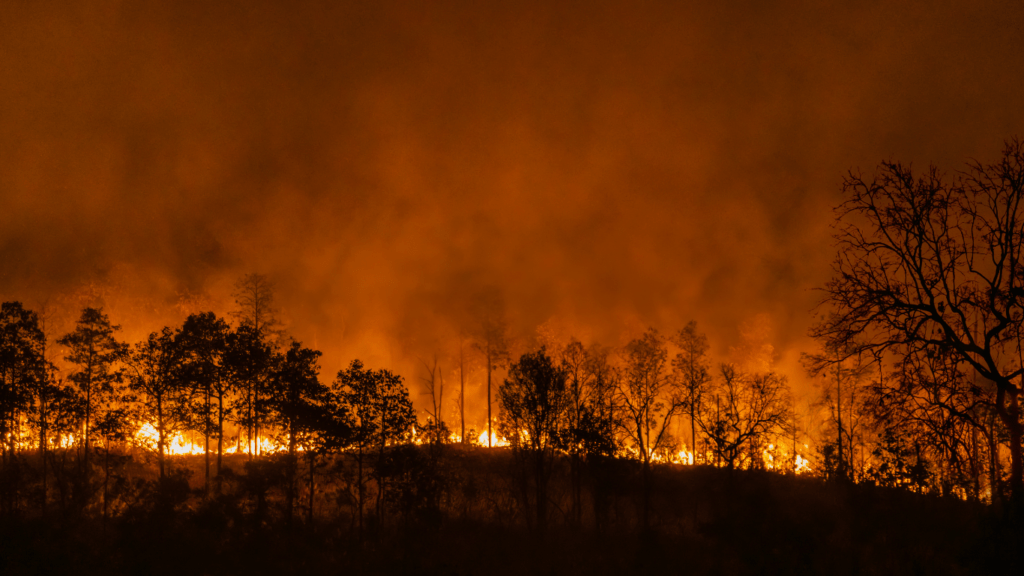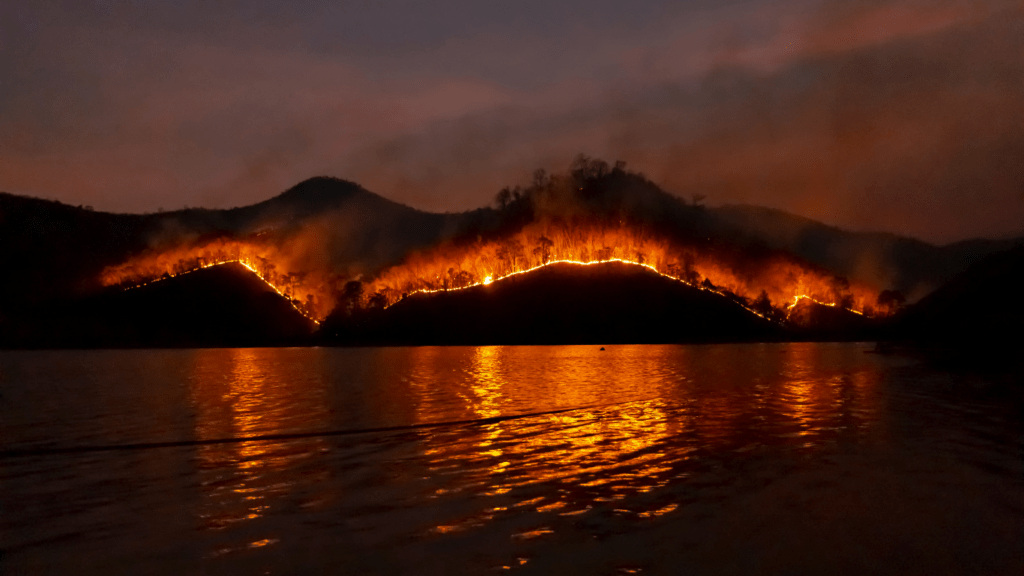As an outdoor enthusiast, the allure of nature’s beauty draws me in, but the devastating impact of wildfires casts a shadow over our beloved landscapes. The effects of wildfires on outdoor recreation are profound, reshaping the very environments we cherish and altering our experiences in the great outdoors.
When these natural disasters strike, not only do they pose a threat to the flora and fauna, but they also disrupt the activities we hold dear, from hiking and camping to fishing and birdwatching. The aftermath of a wildfire can transform once vibrant trails into charred landscapes, challenging us to adapt and find new ways to engage with nature.
Navigating the evolving relationship between wildfires and outdoor recreation is crucial for preserving our connection to the environment while mitigating the risks posed by these increasingly common disasters.
Understanding Wildfires and Their Effects
Exploring how wildfires impact outdoor recreation is essential in appreciating the intricate dynamics between these natural phenomena and our activities in nature. Recognizing the devastating effects of wildfires on landscapes and ecosystems is crucial in comprehending the challenges they pose to outdoor enthusiasts. Being aware of the influence of wildfires on popular recreational areas enables us to adapt and develop strategies to ensure sustainable engagement with the environment.
Understanding the behavior of wildfires and their lasting consequences allows me to navigate outdoor pursuits more cautiously. Environmental changes resulting from wildfires can reshape the terrain, affecting familiar hiking trails and camping grounds. By acknowledging the long-term impact of wildfires on vegetation and wildlife habitats, I can make informed decisions about where and how to explore the outdoors safely.
Comprehending the evolving relationship between wildfires and outdoor recreation empowers me to be proactive in preserving natural spaces. By staying informed about wildfire patterns and areas at risk, I can contribute to conservation efforts and help mitigate potential dangers to both the environment and recreational activities. Being cognizant of the interplay between wildfires and outdoor recreation fosters a deeper appreciation for the resilience of nature and inspires me to advocate for sustainable practices in enjoying the great outdoors.
Influence on Outdoor Recreation Activities
Wildfires have a profound impact on outdoor recreation activities, significantly altering the natural landscape and disrupting the experiences of outdoor enthusiasts. Let’s delve into how wildfires influence various aspects of outdoor recreation.
- Closure of Recreation Areas
After a wildfire, many recreation areas may be temporarily closed to the public due to safety concerns, habitat restoration efforts, and the need to assess the extent of damage. These closures are crucial to protect both visitors and the environment from potential hazards such as unstable terrain, falling trees, and lingering smoke. It’s essential for outdoor enthusiasts to respect these closures and adhere to guidance from park authorities to ensure their safety and support the recovery process. - Impact on Tourism
Wildfires can have a significant impact on tourism in areas popular for outdoor recreation. Destinations that rely on outdoor activities may experience a decline in visitor numbers following a wildfire due to safety concerns, damaged infrastructure, and reduced recreational opportunities. This downturn in tourism can have ripple effects on local businesses, economies, and communities that depend on tourist activity. Understanding the economic repercussions of wildfires on tourism is crucial for developing strategies to support recovery and promote sustainable tourism practices.
Changes in Visitor Behavior
In the aftermath of wildfires, visitors to outdoor recreation areas may exhibit changes in behavior as they adapt to the new landscape and environmental conditions. Some individuals may be more cautious about engaging in high-risk activities such as backcountry camping or hiking in recently burned areas. Others may show increased interest in learning about fire ecology, forest regeneration, and the role of wildfires in shaping ecosystems. These changes in visitor behavior underscore the importance of education, outreach, and communication efforts to enhance visitor experiences and promote responsible outdoor recreation practices.
Strategies for Mitigating the Impact
To address the challenges posed by wildfires on outdoor recreation, here are some effective strategies for mitigating their impact:
Implement Fire Prevention Measures:
Enhance fire prevention efforts by educating visitors on wildfire risks.
Enforce strict regulations on campfire usage and smoking in recreation areas.
Conduct regular patrols to monitor and prevent any potential fire outbreaks.
Develop Emergency Response Plans:
Establish clear protocols for evacuating recreation areas during wildfire threats.
Train staff and volunteers in wildfire response procedures to ensure quick and coordinated actions.
Collaborate with local authorities and fire agencies to enhance emergency preparedness.
Restore and Rebuild Recreation Areas:
Invest in habitat restoration and reforestation projects to revitalize areas affected by wildfires.
Rebuild infrastructure such as trails, campsites, and visitor centers to support outdoor recreation activities.
Engage community volunteers in the restoration process to foster a sense of stewardship and ownership.
Promote Resilient Landscapes and Ecosystems:
Encourage the use of fire-resistant landscaping practices in recreation areas to reduce wildfire risks.
Support ecosystem conservation efforts to enhance biodiversity and ecosystem resilience.
Implement sustainable land management practices to maintain healthy landscapes and minimize wildfire impacts.
Educate Visitors on Responsible Recreation Practices:
Raise awareness about the importance of respecting natural environments and wildlife habitats.
Promote Leave No Trace principles to minimize human impact on recreation areas.
Encourage visitors to report any suspicious activities or signs of potential fire hazards.
By implementing these strategies, we can proactively mitigate the impact of wildfires on outdoor recreation, protect natural landscapes, and ensure a safe and enjoyable experience for visitors.



 Karencita Oboyler brings her creative flair and deep appreciation for the natural world to her role at Terra Tactician Tactics. With a background in digital marketing and content strategy, Karencita is dedicated to crafting engaging and visually appealing articles that captivate the platform's diverse audience. Her work focuses on highlighting unique outdoor destinations, offering practical travel advice, and showcasing the beauty of nature through stunning photography and storytelling. Karencita's ability to blend creativity with valuable information has helped Terra Tactician Tactics stand out as a dynamic and compelling resource for outdoor enthusiasts.
Beyond her content contributions, Karencita is passionate about building a vibrant community around the platform. She is committed to fostering an inclusive space where everyone, from seasoned adventurers to curious beginners, feels welcomed and inspired to explore the great outdoors. Her innovative ideas and strategic approach to content development have been instrumental in expanding Terra Tactician Tactics' reach and impact. Karencita's enthusiasm for the project is matched only by her love for nature, making her an integral part of the team and its continued success.
Karencita Oboyler brings her creative flair and deep appreciation for the natural world to her role at Terra Tactician Tactics. With a background in digital marketing and content strategy, Karencita is dedicated to crafting engaging and visually appealing articles that captivate the platform's diverse audience. Her work focuses on highlighting unique outdoor destinations, offering practical travel advice, and showcasing the beauty of nature through stunning photography and storytelling. Karencita's ability to blend creativity with valuable information has helped Terra Tactician Tactics stand out as a dynamic and compelling resource for outdoor enthusiasts.
Beyond her content contributions, Karencita is passionate about building a vibrant community around the platform. She is committed to fostering an inclusive space where everyone, from seasoned adventurers to curious beginners, feels welcomed and inspired to explore the great outdoors. Her innovative ideas and strategic approach to content development have been instrumental in expanding Terra Tactician Tactics' reach and impact. Karencita's enthusiasm for the project is matched only by her love for nature, making her an integral part of the team and its continued success.